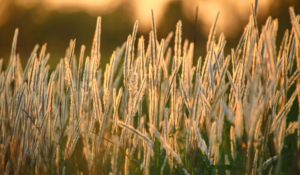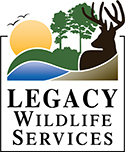
Invasive plant and wildlife species are detrimental to forest landowners. Non-native invasives can reduce forest productivity and hinder management. They can degrade diversity and destroy wildlife habitat. These exotic plants and wildlife can be easily spread through the environment along forest roads, right-of-ways or even by hunter activity.
Wildlife plantings (food plots) should never include any non-native species. Hunters should also be aware that their equipment can facilitate the spread of certain exotic plants. Cogongrass for example (seen in the picture below) and other invasive species can be unintentionally spread as hunters mow roads or plow & harrow food plots. Hunters should never bring equipment on the property that is contaminated with Cogongrass from other areas. Cogongrass can get caught up in ATV’s and be unintentionally spread throughout the forest as hunters scout and ride the property.
Below is a partial list of invasive species that should be monitored and reported when located on our properties:
- Cogongrass
- Giant Reed
- Japanese Climbing Fern
- Kudzu
- Chinese Privet
- Chinaberry Tree
Our hunters should recognize the necessity and desirability of the prevention and control of invasive plant species on the property and hunters should promptly report to Legacy Wildlife Biologists the existence of any invasive plant species on the property. Hunters should not mow, plow, harrow or otherwise spread invasive plants species. Hunters should not transport onto the property any equipment that is contaminated with invasive plant species from other areas.
Invasive animal species can be just as detrimental to habitats and native wildlife. Although it is illegal, some hunters trap and release feral hogs for hunting. Feral hogs are extremely destructive to the environment and compete directly for resource with the native game species. Hogs should never be stocked on any of our properties. Coyotes are another invasive species that has harmful impacts on the local wildlife and should be removed at every opportunity.
Contact Jeff to learn more about managing your hunting land. Call 877-5-TO-HUNT, or submit our contact request form.
